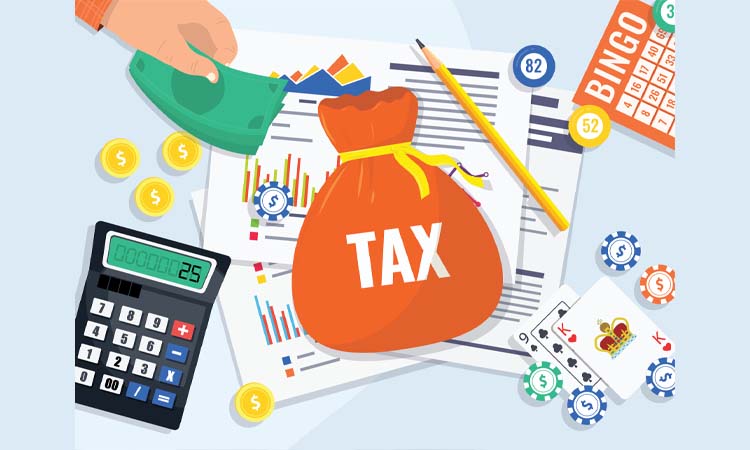One of the biggest expenses for anyone who wins a jackpot is taxes. The Internal Revenue Service takes a lot of money from lottery winners, including taxes on the amount earned and winnings from the syndicate prize pool. In addition, most states have taxes to pay on in-state winnings. This means that you either have to pay the tax or try to get it back through a tax refund.
Sometimes, it’s possible to get a refund without paying any taxes on the winnings because of an IRS “win-back” provision that allows some people to recoup their losses up to three years after winning. You can contact your local IRS office for more information about this option.
Even if you don’t have a tax obligation for the prize, you still have to pay federal income tax on any other income you earn during the year. The rules are complicated and depend on your personal situation, but you can expect to owe at least one federal income tax payment each year if you win big.
Taxes on casino winnings will vary depending on where you live. Some states, like Nevada, do not tax winnings from gaming. Others, like New York, tax all income including winnings from gambling.
In order to claim a tax deduction for your winnings, you will need to show the IRS that you have itemized deductions on your federal income tax return. This means that you will need to list any expenses such as charitable donations and mortgage interest payments. You can also deduct any losses from gambling on your personal tax return if you were gambling for fun and did not expect to win. If you are claiming a loss, make sure you have documentation to support your claim, such as cancelled checks and receipts for your expenses.
If the IRS discovers that you are claiming a loss when in fact you had won money, they may take the money back or withhold taxes at the rate of 25% of your winnings.

If you win money from playing casino games, there will be tax implications. At the federal level, income taxes are due on any money that you win above certain limits (in 2018, the amount is $1,150 for individuals and $2,500 for married couples). In addition to federal income taxes, you may also owe state income taxes in some states.
There are also other taxes that you may have to pay, like sales tax on prizes and lottery winnings. These laws are set by each individual state, so you should check with your local authorities if you want to know more about what happens when you win money at a casino.
When it comes to gambling winnings, there are always two sides: the winner and the loser. When the winner takes home a big amount of cash or gets something valuable, they’re obviously happy with the outcome. But if they lose all of their money or receive nothing at all, they’re unhappy.
Taxes on casino winnings are a big issue across the world. While gambling is legal throughout most of the world, lotteries and casinos are typically taxed in the same manner as other types of businesses. As a result, gamblers are often subject to taxation on their winnings and may also face reporting requirements in some countries.
There are a number of ways that you can minimize your tax burden when it comes to gambling winnings. The most obvious way is to play the odds and avoid placing bets where the house has an advantage, such as at a casino. Another way to minimize your tax burden is to play for smaller amounts at a time. This can help reduce the amount of winnings you have during any given year, which can help you reduce your tax liability as well.
Finally, if you’re planning on leaving a large amount of money from your gambling winnings behind when you die, consider creating a trust or estate plan to ensure that they will be passed down to the people who need them most.


